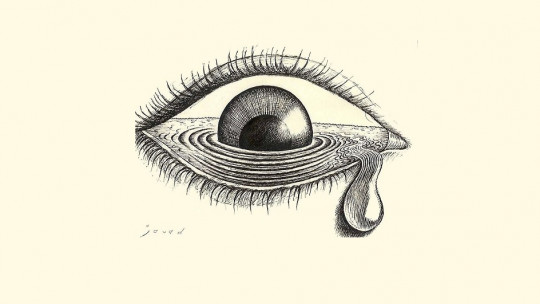
In the delicate balance of mental health, therapists play a critical role, acting as compassionate guides on their patients’ emotional journey. However, in the constant dedication to improving the lives of others, it is easy for therapists to neglect one crucial aspect: their own well-being.
The therapist’s work goes beyond the scheduled sessions and the techniques learned in academic training. It becomes an empathic dance, where the therapist immerses themselves in the emotions of others to provide support and guidance. This intense, although rewarding, emotional connection can carry considerable weight. Unwavering dedication to helping others often translates into a tendency to relegate self-care to the background.
In this article, Let’s focus on the self-care of therapists and why it is important to encourage it and pay attention to it for better therapeutic results and development of your functions and objectives as a therapist.
Importance of the therapist’s work
The therapist’s work goes beyond the application of techniques and theories; It involves a deep connection with patients’ emotions and experiences. This emotional connection is the foundation upon which therapy is built, allowing trust to flourish and a safe space to be established for the exploration of one’s most intimate thoughts.
Empathy as a driving force
Empathy, a central skill in a therapist’s repertoire, becomes the bridge that unites the professional with the experiences of his patients. The ability to understand and share the emotions of others not only facilitates communication, but also promotes an environment in which patients feel understood and validated. However, this deep connection can take a significant emotional toll on the therapist if not approached with due care.
The act of holding the pain and struggles of others can become overwhelming over time. Therapists often face stories of trauma, loss and emotional challenges which, although crucial for the therapeutic process, can generate a cumulative emotional charge. The lack of a solid self-care system can transform this burden into a difficult weight to carry, affecting the therapist’s ability to offer effective and compassionate support.
Job challenges
Likewise, the intense emotional connection with patients can be rewarding but also exhausting. Therapists can find themselves in a vulnerable position, especially when faced with difficult cases or the failure to make significant progress in a patient’s life. The resulting emotional burnout can manifest as exhaustion, anxiety, or even depression if not properly addressed.
In this context, self-care is revealed as an essential component to preserve the emotional integrity of the therapist. By maintaining a healthy balance between empathic connection and self-preservation, therapists can continue to play their crucial role in the healing process without sacrificing their own mental and emotional health.
What is self-care?
Self-care for therapists is not an indulgent luxury, but rather an essential investment in the ability to provide high-quality, sustainable therapeutic support. It involves a continuous awareness of one’s own physical, mental and emotional needs, as well as the adoption of practices that promote the therapist’s comprehensive health. By understanding and actively applying the concept of self-care, therapists can improve their resilience to the stresses inherent to the job, thereby preserving their ability to guide others on their journey toward emotional well-being.
Self-care encompasses a diverse range of practices, from the physical to the emotional and spiritual. On a physical level, maintaining an exercise routine, a balanced diet, and ensuring adequate rest are fundamental components of self-care. These habits not only promote physical health, but also have a direct impact on mental and emotional well-being.
Besides, Self-care involves attention to mental health. Regular practice of mindfulness and relaxation techniques can help therapists manage stress and maintain mental clarity. Seeking clinical supervision and participating in creative or recreational activities can also be valuable avenues to disconnect from work and recharge.
Consequences of personal neglect
Personal neglect on the part of therapists not only affects their individual well-being, but also has direct repercussions on the quality of the therapeutic service offered. Ignoring one’s own needs and not addressing cumulative tensions can lead to negative consequences both personally and professionally.
1. Mental health and well-being
On a personal level, prolonged neglect can manifest as emotional exhaustion, physical fatigue, and a general decline in mental health. Therapists who do not prioritize their own well-being risk experiencing high levels of stress, anxiety, and burnout which can negatively impact your daily life and your ability to enjoy activities outside of the therapeutic environment.
2. Quality of therapy
Additionally, personal neglect can have a direct impact on the quality of therapy offered. Lack of emotional and mental energy can decrease the therapist’s ability to make effective connections with patients. Fatigue can affect clarity of thought and the ability to make informed decisions during the sessions, thus compromising the effectiveness of the therapeutic intervention.
3. Decreased empathy and patience
Therapist burnout can also translate into a decrease in empathy and patience, fundamental elements in the therapeutic process. Patients, who depend on the engaged and compassionate presence of their therapist, may perceive emotional disconnection, potentially impacting trust in the therapeutic relationship.
4. Burnout
Lack of self-care can also contribute to job turnover and burnout in the therapeutic profession. Therapists experiencing high levels of stress and burnout They may be tempted to leave the profession depriving patients of continuity and stability in their care.
Therapist self-care is not a luxury, but an essential necessity. Ignoring this aspect can have negative repercussions both personally and professionally, affecting the quality of the therapy offered. Prioritizing the therapist’s well-being not only preserves their mental health, but also strengthens the therapeutic connection, ensuring effective and sustainable care for those seeking emotional help.








